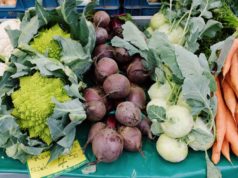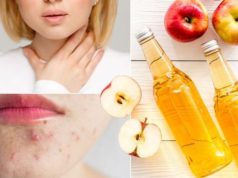Whether you like it or not, menopause, along with its unpleasant symptoms, will be a part of your middle-aged years. However, you can manage the severity of your menopausal symptoms with your lifestyle choices.
You can even cut down the risks of menopause-related illnesses with simple diet and lifestyle changes. To ace menopause the healthy way, here are simple diet and nutrition tips you can practice even before you reach your menopausal stage:
Increase your calcium intake:
One of the menopausal symptoms is osteoporosis or bone loss. To prevent menopause-related bone loss, you need to enhance your calcium intake. During menopause, your need for calcium increases because of the decline in your estrogen levels. Loss of estrogen can rev up significant bone loss because low estrogen leads to low calcium absorption in the bones.
To achieve your optimum calcium requirement, aim for 1200 milligrams of calcium daily. Include calcium-rich foods such as milk, yogurt, salmon, sardines, broccoli, and legumes in your daily meals. However, food and diet alone may not be able to reach the daily requirement. That is why calcium supplements may also be taken.
Cut back on your alcohol consumption:
Limit your alcohol intake to one or fewer drinks daily or much better if you totally eliminate alcohol especially during your menopause.
Drinking alcohol can trigger menopausal symptoms such as hot flashes and night sweats, migraines, vaginal atrophy or dryness, mood swings, weight gain, and sleeping difficulties. To make menopause more manageable, lessen your alcohol consumption.
Instead of reaching for a glass of whiskey, reach for a glass of water instead. It is recommended to drink at least eight glasses of water daily to fulfill the daily requirement of healthy adults. More than that, water also helps combat vaginal dryness and dry skin as it helps retain your skin’s moisture.
Get hold of enough fiber from whole grains:
Adult women are suggested to have about 21 grams of fiber daily through incorporating fiber-rich foods in their daily menu. Fiber-rich foods such as whole grains help stave off weight gain, manage stress, boost energy, and promote a healthier digestive function. The folic acid and fiber content of whole grains also helps lower the risk of cardiovascular diseases in menopausal women.
High-fiber foods can be in the form of steel-cut oatmeal, brown rice, barley, quinoa, whole-grain bread, cereals, and pasta, and fresh fruits and vegetables. Preferring high-fiber foods such as whole grains over refined products can also make you feel full longer and help you achieve long-term lose weight.
Take salt and salty foods in moderation:
Keep your salt intake on watch. A diet high in salt or sodium causes the body to maintain high levels of fluid that leads to water retention. This water retention can increase your risks of high blood pressure, heart strain, edema, and bloating. You should also limit your intake of smoked, charbroiled, and salt-cured foods that contain high levels of nitrates – compounds that are associated with cancer.
When you start craving for salty foods, it signals that you have a mineral deficiency. Go for sea salt, sea vegetables, and water-rich vegetables that are rich in minerals instead of unhealthy salty foods. Avoid food products with refined salt, such as packaged and processed foods. Along with this, drink lots of water.
What you eat will significantly affect you in different ways especially as you go through the menopausal stage. A healthy and balanced diet during menopause can help you ace menopause and make it a lot more bearable. Eat your way to a victorious menopause!
Author Bio:
Sanford Harvey loves to sail and enjoys being outdoors when he is not wearing his writing hat. Aside from being outdoors his interests include health fitness and nutrition. Thus, he is enjoying writing for Genemedics Health Institute.











